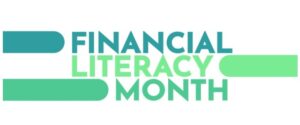November of 2025 marks Canada’s 15th annual Financial Literacy Month (FLM) led by the Financial Consumer Agency of Canada (FCAC) since 2011. The theme for this year is “Talk Money,” encouraging Canadians to openly talk about money. Openly talking about money helps everyone understand money better and feel more confident managing it.
What is financial literacy?
According to the Government of Canada, “Financial literacy is having the knowledge, skills and confidence to make responsible financial decisions.” Financial literacy is more than just knowing about money. It is about putting what we know into real life. It starts with understanding our own money and how money works in the world.
Knowing about money is not enough. You need the practical ability to apply that knowledge in your everyday situations. Feeling confident about your choices and believing you can make smart decisions is just as important. With knowledge, practical skills and confidence together, you can make more confident financial choices.
Why financial literacy matters?
Let us take a look at some statistics about the current financial situation in Canada.
According to OECD research, Canada ranks 4th globally for answering key financial questions correctly. On average, men score higher than women in financial knowledge.
When talking about consumer optimism, only 40 per cent of Canadians feel positive about the next 12 months. About 83 per cent are worried about the rising living costs. This is because of the inflation on everyday goods and the continuing trade war.
The financial well-being of Canadians is concerning. OECD 2023 gave Canada a score of 47/100, less than half across all countries surveyed. When it comes to financial priorities, people focus more on short-term needs. For example, paying off debt, building an emergency fund, and building retirement savings.
According to TransUnion, more Canadians are worried about their household income. The percentage has been climbing up since 2021 and is around 31 per cent now. Correspondingly, percentages of those being very optimistic have slid down from over 50% to around 40%.
Digital financial services are growing, yet many adults lack confidence or trust in online tools. Gen Z and Millennials are more likely to use digital platforms and apply for credit online. They are comfortable with accessing and learning things online. Older generations have lower digital financial literacy. That is why it is important to have financial education tailored for all ages.
Overall, Canadians are doing okay-ish financially. Some signs do suggest that many people, and even more, are struggling with debt, budgeting and planning for the future. Stronger financial literacy is key to better decisions, confidence, and long-term financial stability.
Join the 2025 campaign and break the money stigma
Money talk can often feel uncomfortable, but this year’s FLM is all about breaking that stigma. The FCAC encourages everyone to share experiences and learn from each other’s financial planning journeys. FCAC invites everyone to join in the following social media challenges. Tag #FLM2025 and #TalkMoney with your post.
The Stretch $15 Challenge on X, Facebook, Instagram
Ever wondered how far $15 can go? Show off your budgeting skills and financial creativity with the Stretch $15 Challenge. Share how you make every dollar count, swap tips with others, and see how Canadians across the country are getting clever with their money. You are not limited to revolving around $15. The goal is for people to share experiences about financial literacy.
Share your personal financial success stories on LinkedIn
Which money tip has truly made a difference in your life? Join the conversation on LinkedIn with two challenges:
- Budgeting Like a Pro -sharing your top budgeting tips.
- Financial Wisdom Pass-It-On – talking about the financial advice that has helped you the most.
It is a chance to inspire others and celebrate your own financial journey.
Building better habits through everyday financial tools
Becoming more financially literate also means understanding how to use everyday skills such as:
- Budgeting
- Credit score and report monitoring
- Debt management
- Retirement planning
- Compound interest vs. simple interest
- Financial resilience tools like emergency funds and sinking funds
- Avoiding scams and fraud
Improving financial literacy by earning these skills will help you feel more financially secure and empowered. Make the most of this Financial Literacy Month by committing to learn one new skill to boost your financial health. This way, you can all feel more confident that you’re making smart money choices. Happy FLM, everyone!






